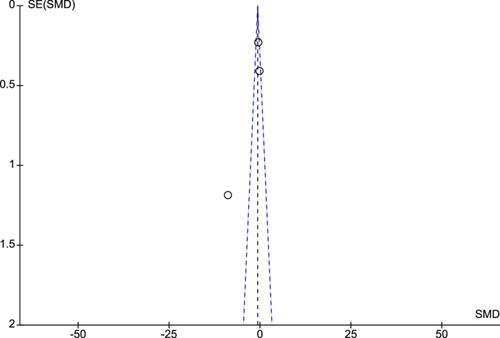Postpartum depression (PPD) is a condition that can affect any woman regardless of ethnicity, age, party, marital status, income, and type of delivery. This condition is highly prevalent worldwide. PPD, if not treated timely, can affect the maternal-child bond and can have a detrimental impact on the future cognitive, emotional, and behavioral development of the child. Interpersonal psychotherapy (IPT) has been reported as an effective treatment of PPD in previous studies as this focuses on relationship and social support issues. Previous reviews conducted in developed nations have reported the superior efficacy of IPT in comparison to other treatment options. There is no systematic review conducted in low to middle-income countries on the efficacy of IPT on PPD. Therefore it was necessary to undertake a systematic review to assess the effectiveness of IPT in reducing the depression among postpartum women in low and middle-income countries (LMICs).
The main aim of this systematic review was to assess the effectiveness of IPT alone or in conjunction with pharmacological therapy and/or other psychological and psychosocial interventions, in reducing depressive symptoms among women diagnosed with PPD residing in LMICs.
The systematic search encompassed several prominent databases and grey literature. Furthermore, experts specializing in the field of IPT were consulted to identify any relevant studies conducted in LMICs that fulfilled the predetermined eligibility criteria. The most recent search update was performed in July 2022.
The PICOS criteria were meticulously defined for this review as described. Participants: Postpartum women diagnosed with PPD in LMICs were included. Intervention: IPT either as a standalone treatment or in conjunction with pharmacological therapy was included. Comparison: any form of psychological therapy or pharmacological therapy, whether administered individually or in combination, was considered for comparison. Study designs: experimental and quasi-experimental, factorial designs, and quantitative components (experimental, quasi-experimental, factorial designs) of mixed methods designs were eligible to be included. Studies with single-group study designs and qualitative studies were excluded from the review.
Two reviewers from our team conducted a rigorous screening process to determine the eligibility of articles for inclusion. This involved an initial evaluation of titles and abstracts, followed by a comprehensive assessment of the full text of selected articles. In instances where discrepancies arose between the two reviewers, resolution was achieved through discussion or consultation with a third author to establish a consensus. Following the screening process, two team members independently extracted pertinent information and data from the studies that met the inclusion criteria. The treatment effect of the intervention, in comparison to the control group, was subsequently analyzed utilizing the fixed effects model taking into account the small number of studies.
A total of 17,588 studies were identified from various databases, and 6493 duplicate studies were removed. Subsequently, 9380 studies underwent independent title and abstract screening resulting in the exclusion of 9040 studies. 345 full texts were thoroughly assessed leading to the exclusion of 341 studies, finally including 4 studies for review. The four included trials were randomized trials and comprised a total sample size of 188 women diagnosed with PPD residing in LMICs. Among these studies, three compared IPT with usual treatment, while one study compared IPT with antidepressant medications (ADMs). In terms of the providers of IPT, in one study, IPT was administered by nurses, while psychologists delivered IPT in another study. In one study, community health workers were responsible for providing IPT. However, in one study, information regarding the specific providers of IPT was not available or reported. The primary outcome measure reported in all four studies was depression, assessed using the Edinburgh Postnatal Depression Scale (EPDS). The geographical distribution of the studies included; one conducted in Zambia, one in Kenya, one in Pakistan, and one in Iran. Out of the four studies, three were included in the meta-analysis, as missing data from one study could not be obtained. Based on the overall treatment effect, it was found that depression scores decreased significantly more in the IPT group compared to other interventions (usual treatment or ADMs) (standardized mean difference [SMD] −0.62, 95% confidence interval [CI] (−1.01, −0.23), Z = 3.13 (p = 0.002), χ2 = 49.49; df = 2; p < 0.00001; I2 = 96%; 3 studies, n = 136). Out of the three studies, two studies compared the effectiveness of IPT in reducing depression scores specifically when compared to the usual treatment, and in both studies, depression scores were reduced significantly in the IPT group as compared to the usual treatment group. Only one study directly compared the effectiveness of IPT with ADM, reporting that IPT was more effective than ADM in reducing depression scores among postpartum women. Regarding adverse outcomes, only one study reported suicidal ideation with one participant in the IPT group and two in the ADM group (RR 0.50, 95% CI (0.05, 5.30), p = 0.56, n = 78). The same study reported seven participants in the ADM group had adverse drug reactions as compared to none in the IPT group (RR 15.0, 95% CI (0.89, 254), p = 0.06, n = 78).
Our comprehensive search yielded a limited number of four studies conducted in such settings. Despite the scarcity of available evidence, the findings collectively suggest that IPT is indeed an effective treatment for reducing PPD when compared to usual treatment and pharmacological therapy. However given the low certainty of evidence, there is a need for further research in the form of well-designed randomized controlled trials with larger sample sizes and a reduced risk of bias. Such studies would greatly contribute to enhancing the strength and reliability of the evidence base regarding the effectiveness of IPT in the context of PPD in LMICs. The knowledge generated from future research endeavors would be highly valuable in guiding the development of more affordable and cost-effective treatment approaches for PPD in resource-limited settings.



